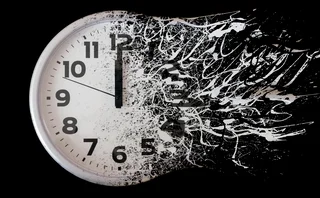One Small Step for Esma

Indeed, Europe is getting far closer to achieving Group-of-20 (G20) mandates, albeit a little later than might have originally been envisaged in Pittsburgh. The US, too, is forging ahead with its own narrative. Credit where credit is due, lawmakers on both sides of the Atlantic have put together an incredible volume of new legislation in a relatively short period of time. The G20's demands may have seemed relatively straightforward when first agreed upon, but in actual practice, they required a wholesale overhaul of the way markets worked.
For the European Market Infrastructure Regulation (Emir), perhaps the most important part of the toolkit in Europe for derivatives, Maijoor said that the technical work was 80-percent complete. In the US, while officially, electronic trading of derivatives is in full swing, there are still numerous exceptions and fierce debate over key areas such as packaged transactions. Reporting is largely in place for both regions, but the clearinghouse issue is causing a headache for Esma and others.
Only four out of twenty central counterparty clearinghouses (CCPs) that applied have been authorized, although Maijoor said that he expects this number to increase. Still, you can't help but feel there's a little concentration risk in that number. Also, the two remaining areas of Emir technical standards to be defined are pretty crucial ─ which products should go into central clearing, and what level of margin should be posted for those that don't.
You can read more about Maijoor's speech here.
Outsourced Surveillance?
Other items of coverage this week included Trapets AB's announcement of its Outsourced Market Surveillance product, the acronym for which shouldn't be confused with the same three-letter abbreviation for order management system. Now, Trapets has been quietly building its strength for a while, first hiring Burgundy's head of market surveillance, Peter Nylén, away last year, landing a deal with the Dhaka Stock Exchange in February, and then casually dropping this service on the market last week.
Only four out of twenty central counterparty clearinghouses (CCPs) that applied have been authorized, although Maijoor said that he expects this number to increase.
The surveillance offering will be overseen by Nylén from Stockholm, and come in two flavours ─ one where suspicious transaction reports are automatically filed with the regulator, and one where they're sent back to the firm for the final decision.
This has plus and minus sides, in my view. On the one part, the likely cost reduction, not needing to buy complicated surveillance platforms and, let's say it again, cost reduction will be key points for resource-constrained operations. On the other hand, not having the primary surveillance operation in-house, with compliance officers familiar with the trade flow of a company and the behavior of its traders, seems like food for thought.
If you've come to this Editor's Letter through the website, remember that you can sign up for Sell-Side Technology's weekly digest for free, which is delivered at 2pm GMT/BST or 9am EST/EDT every Monday.
Only users who have a paid subscription or are part of a corporate subscription are able to print or copy content.
To access these options, along with all other subscription benefits, please contact info@waterstechnology.com or view our subscription options here: http://subscriptions.waterstechnology.com/subscribe
You are currently unable to print this content. Please contact info@waterstechnology.com to find out more.
You are currently unable to copy this content. Please contact info@waterstechnology.com to find out more.
Copyright Infopro Digital Limited. All rights reserved.
As outlined in our terms and conditions, https://www.infopro-digital.com/terms-and-conditions/subscriptions/ (point 2.4), printing is limited to a single copy.
If you would like to purchase additional rights please email info@waterstechnology.com
Copyright Infopro Digital Limited. All rights reserved.
You may share this content using our article tools. As outlined in our terms and conditions, https://www.infopro-digital.com/terms-and-conditions/subscriptions/ (clause 2.4), an Authorised User may only make one copy of the materials for their own personal use. You must also comply with the restrictions in clause 2.5.
If you would like to purchase additional rights please email info@waterstechnology.com
More on Regulation
Big questions linger as DORA compliance approaches
The major EU regulation will go live tomorrow. Outstanding clarifications and confusion around the definition of an ICT service, penetration testing, subcontracting, and more remain.
Insurance: The role of risktech in effectively managing emerging risks and driving competitive edge
This whitepaper covers the global survey, conducted by Chartis Research and TCS, of banking, financial services and insurance firms, which found that insurers are struggling to adapt to evolving risks and regulatory requirement increases. Chartis offers…
FX automation key to post-T+1 success, say custodians
Custody banks saw uptick in demand for automated FX execution to tackle T+1 challenges.
Observations and lessons to learn from the move to T+1
The next few years will see other jurisdictions around the world look to North America for guidance on transitioning to shorter settlement cycles.
Expanded oversight for tech or a rollback? 2025 set to be big for regulators
From GenAI oversight to DORA and the CAT to off-channel communication, the last 12 months set the stage for larger regulatory conversations in 2025.
DORA flood pitches banks against vendors
Firms ask vendors for late addendums sometimes unrelated to resiliency, requiring renegotiation
In 2025, keep reference data weird
The SEC, ESMA, CFTC and other acronyms provided the drama in reference data this year, including in crypto.
Waters Wavelength Ep. 299: ACA Group’s Carlo di Florio
Carlo di Florio joins the podcast to discuss regulations.







